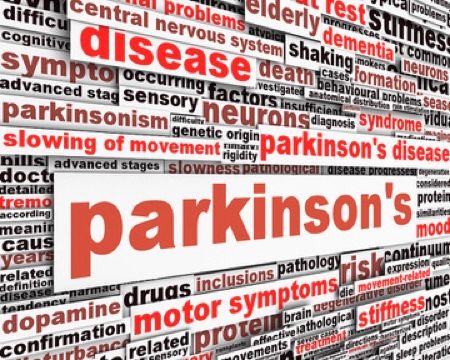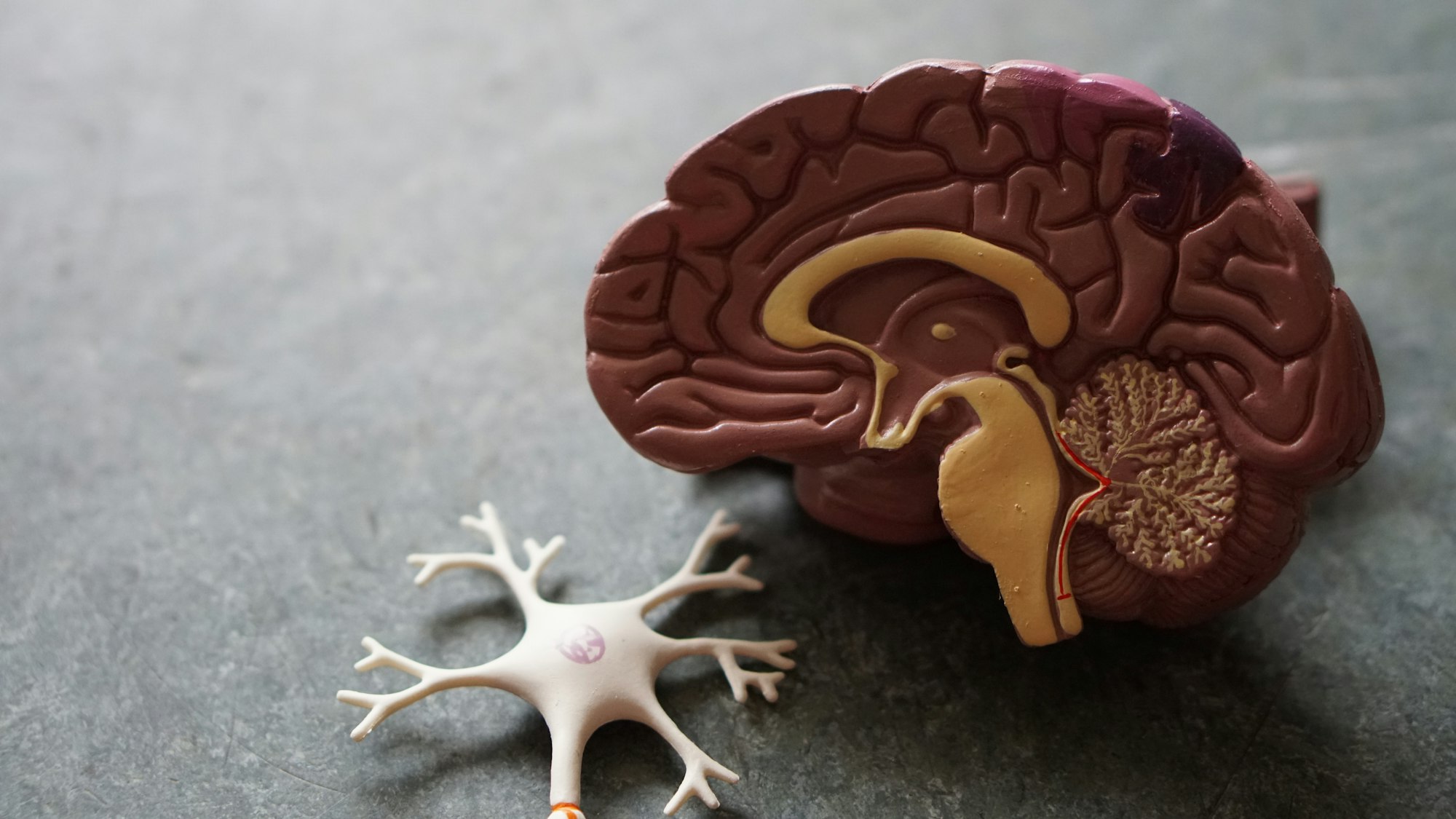Advanced Dementia – The Last Stages of Dementia
Understanding the common features of advanced dementia in Alzheimer's disease, including brain atrophy, circadian rhythm disruption, incontinence, and more. Find out how long someone with dementia may live and the factors that can impact their lifespan.

Understanding the common features of advanced dementia in Alzheimer’s disease, including brain atrophy, circadian rhythm disruption, incontinence, and more. Find out how long someone with dementia may live and the factors that can impact their lifespan.
Advanced Dementia
Alzheimer’s research studies found common features of advanced dementia. These findings apply to 98 percent of patients. They experience symptoms occurring in the moderate to late stages of dementia. Effective advance care planning can help align healthcare interventions with patient preferences, ultimately enhancing comfort and reducing unnecessary hospitalizations.
These findings consist of:
- Significant shrinking of the brain. This is due to massive cell death. It is evident through brain imaging scans. Atrophy is noted in the cortex and hippocampal areas.
- A Disruption of the natural circadian rhythm. This causes dementia patients to experience daytime sleepiness. It also contributes to nighttime wakefulness. This leads to night wandering.
- Incontinency becomes more of an issue. The brain areas regulating bladder control deteriorate and muscle weakness increases.
Death and Dementia–How Long Does Someone With Dementia Live?
Many Alzheimer’s dementia patients may live up to 20 or even 30 years following a diagnosis of the disease. This depends on the patient’s health condition at the time of the diagnosis. The level of care received during the progression of the disease. Also plays a part.
Yet, as a patient’s cognitive abilities decline, so does their immune system. Making them more vulnerable to potentially deadly illnesses like pneumonia.
Researchers studied advanced dementia patients entering 22 different Boston, Massachusetts nursing homes. Over a period of 18 months, they discovered that 45 percent of these patients suffered one or more bouts of pneumonia.
This happened following admittance to a facility. Younger individuals are generally treated for pneumonia with antibiotics like azithromycin. Older people experience difficulty in metabolizing medication due to liver and kidney dysfunction. Antibiotics frequently have little affect on pneumonia. Treating the pneumonia may even cause severe reactions in elderly people. As many become are hypersensitive to strong antibiotics.
Complications influencing the lifespan of a dementia patient requiring 24 hour care includes:
- Frequent falls
- Dehydration and malnutrition
- Suicide
- Aggressive behavior that may force aggressive responses
- Accidentally ingesting the wrong medication. Or taking too much or too little of a medication
Accurately predicting life expectancy in patients with advanced dementia is challenging, especially in the context of hospice eligibility, which often requires an estimated survival of less than six months.
In the early stages of dementia, medications are introduced to try to inhibit the progression of Alzheimer’s. It is one aspect of a holistic treatment plan. It is designed to prolong the quality of life. It is inevitable that a person diagnosed with Alzheimer’s disease will experience advanced dementia. The debilitating symptoms characterizing this phase usually require placement in a nursing home. However, existing clinical trials do not include patients at the late stages of dementia, leading to a lack of compelling evidence for the use of these drugs in this population.
Preparing and planning to place a loved one in a nursing home facility, in advance, is important. It will relieve family members of undue stress and worry. Many are concerned about what to do when the time arrives.
- Behavioral and psychological symptoms occur. Approximately 50% of individuals with dementia exhibit these symptoms. Paranoid delusions and engagement in compulsive or repetitive activities occur. Advanced dementia patients frequently believe that caregivers or family members are imposters. Some even believe that they are trying to poison them.
Repetitive actions such as…
- Shredding tissues
- Hand wringing
- Obsessively cleaning one spot are also commonly observed behaviors
Alzheimer’s patients, in moderate stages of dementia, may recognize faces, but are unable to remember names. Later dementia brings the inability to remember faces or names.
The Final Stage of Dementia
The final stages of dementia will cause a total lack of response in dementia patients. They no longer respond to the environment or stimulus cues. Patients require assistance in all aspects of daily living. Extreme muscle and brain atrophy occurs. They may stop communicating, adopt a mask-like expression and have difficulty swallowing. Tube feeding may be suggested. It is at this time, hospice may be recommended. End-of-life care is crucial, focusing on palliative care, comfort, and respecting the patient's wishes.
Medications used to inhibit progression of Alzheimer’s disease are primarily cholinesterase inhibitors. They are designed to elevate levels of acetylcholine. AChE is a neurotransmitter. It is heavily involved in the ability to remember and learn. It is also responsible for stimulating muscle action.
Advanced dementia patients who begin to develop …
- Muscle stiffness
- Tremors
- Uncontrollable muscle movements are suffering from dangerously low levels of AChE.
Donepezil and Namenda are medications intended to treat moderate to severe dementia symptoms. Neither medication will “cure” Alzheimer’s. They may enhance cognitive functioning. This is done by facilitating the ability of AChE receptors to release additional amounts into the brain.
Caregivers may notice improvements in recall and memory. Some may see less irritability and irrational thinking in patients taking these medications. When in the final stages of dementia, patients generally do not respond to these drugs. This is due to such advanced deterioration of the brain.
Providing emotional or spiritual comfort to individuals with advanced dementia can be key to addressing symptoms of BPSD and enhancing the overall well-being of the person receiving care.
Placement of Advanced Dementia Patients in Nursing Homes
Unless families have access to 24-hour in home caregiving services, most will have to place a loved one into a nursing home.
Alzheimer’s nursing homes differ from traditional nursing homes in the following areas:
- Visitors are required to sign in to ensure patients are not subjected to abuse
- Residents are outfitted with alarm bracelets to track movement of dementia patients
- Most doors are equipped with keypad locks. These doors require the person entering or leaving the room input a specific set of numbers
- Alzheimer’s facilities frequently employ a circular design to the building. This is done in order to prevent ambulatory patients from becoming frustrated. Right angles and dead ends tend to confuse dementia patients
- Staff members have extra experience. They have knowledge about all aspects of late-stage and advanced dementia in Alzheimer’s disease. The facility should be able to provide proof they preform background checks on all employees. Every employee, from kitchen workers to registered nurses
- Staff/resident ratio in an Alzheimer’s nursing home should be around one staff member for every five or six residents
Understanding Advanced Dementia
Advanced dementia is a severe and progressive stage of dementia that affects millions of people worldwide. It is characterized by significant cognitive decline, memory loss, and difficulty with daily activities. In this section, we will explore the definition and diagnosis of advanced dementia, its symptoms, and how it differs from earlier stages of the disease.
Definition and Diagnosis of Advanced Dementia
Advanced dementia is typically diagnosed when a person’s cognitive and functional abilities have declined significantly, and they require full-time care and support. The diagnosis is usually made by a healthcare professional, such as a doctor or a geriatrician, who will assess the person’s medical history, perform a physical examination, and conduct cognitive and functional tests. The diagnosis of advanced dementia is often based on the person’s ability to perform daily activities, such as bathing, dressing, and eating, as well as their cognitive function, including memory, language, and problem-solving abilities.
Symptoms of Advanced Dementia
The symptoms of advanced dementia can vary from person to person, but common symptoms include:
- Severe memory loss and confusion
- Difficulty with communication and language
- Disorientation and confusion
- Difficulty with daily activities, such as bathing, dressing, and eating
- Increased risk of falls and injuries
- Increased risk of infections, such as pneumonia and urinary tract infections
- Changes in mood and behavior, such as agitation, aggression, and depression
How Advanced Dementia Differs from Earlier Stages
Advanced dementia differs from earlier stages of the disease in several ways. In the early stages of dementia, people may experience mild cognitive decline and memory loss, but they are often able to perform daily activities and live independently. In contrast, people with advanced dementia require full-time care and support and are often unable to perform daily activities without assistance. Additionally, advanced dementia is often characterized by more severe cognitive decline, including difficulty with communication and language, and increased risk of falls and injuries.
Progression of Alzheimer’s Disease
Alzheimer’s disease is a progressive neurological disorder that affects millions of people worldwide. In this section, we will explore the progression of Alzheimer’s disease, including the early stage, and how to plan ahead for the future.
Early Stage: What to Expect and How to Plan Ahead
The early stage of Alzheimer’s disease is often characterized by mild cognitive decline and memory loss. People with early-stage Alzheimer’s may experience difficulty with memory, language, and problem-solving, but they are often able to perform daily activities and live independently. During this stage, it is essential to plan ahead for the future, including:
- Creating a care plan that outlines the person’s needs and preferences
- Identifying resources and support services, such as home care and adult day care
- Making financial and legal arrangements, such as creating a will and appointing a power of attorney
- Educating family members and caregivers about the disease and its progression
- Encouraging the person to stay physically and mentally active, including exercise and social activities.
By planning ahead and seeking support, people with early-stage Alzheimer’s and their families can better manage the disease and improve their quality of life.
FAQ: Advanced Dementia – The Last Stages of Dementia
What are the minimal clinical criteria for diagnosing late-stage dementia?
Minimal clinical criteria for diagnosing late-stage dementia often include profound memory deficits, severe cognitive impairment, and functional decline. These criteria help assess the person's overall cognitive function and clinical status as their dementia progresses.
What symptoms are common in the later stages of dementia?
Common symptoms in the later stages of dementia include severe cognitive decline, difficulty recognizing family members, profound memory loss, neuropsychiatric symptoms, urinary tract infections, and an increased risk of pressure sores and other medical conditions.
What role does palliative care play in advanced dementia?
Palliative care focuses on providing high-quality, comfort-focused care, addressing both physical symptoms like pain and psychological needs. A palliative care consultation is often recommended to ensure a person’s emotional or spiritual comfort as their disease progresses and during end-of-life care.
When should a hospice referral be considered for someone with advanced dementia?
Hospice care is considered when dementia symptoms have significantly worsened, the person experiences frequent acute illnesses or infections, and when a person’s dementia progresses to the point that life expectancy is limited. A health care proxy or family members often work with providers to determine the right time for hospice care.
How are urinary tract infections managed in late-stage dementia?
Urinary tract infections (UTIs) are common in nursing home residents and late-stage dementia patients. Treatment may involve antimicrobial treatment, though in some cases, suspected UTIs may be managed conservatively based on the patient’s overall health and palliative care goals.
What is the difference between mild, moderate, and late-stage Alzheimer's disease?
Mild Alzheimer's involves early memory loss and difficulty with complex tasks. Moderate Alzheimer's sees worsening cognitive decline and increased difficulty with daily activities. Late-stage Alzheimer's involves profound memory deficits, severe cognitive decline, and total dependence on caregivers.
How does cognitive function decline in the final stages of dementia?
In the final stages, cognitive function significantly deteriorates, leading to profound memory deficits, loss of recognition of family members, and an inability to communicate or perform basic tasks. The Global Deterioration Scale and Functional Assessment Staging are used to evaluate the clinical course.
Can a health care proxy make decisions about end-of-life care?
Yes, a health care proxy is authorized to make medical decisions on behalf of the person with dementia, including decisions about end-of-life care, treatments, and symptom management, ensuring the person’s wishes are followed during the later stages.
What are the treatment options available in the final stages of dementia?
Treatment options in the final stages focus on symptom management, including palliative care to provide comfort, pain relief, and emotional support. Drug treatments like antipsychotic medications or cholinesterase inhibitors are sometimes used, but care is often more about comfort than curative treatments.
How can family members provide emotional or spiritual comfort in the later stages of dementia?
Family members play a crucial role in providing emotional or spiritual comfort by offering companionship, respecting the person's wishes, and working closely with healthcare providers or palliative care organizations to ensure their loved one’s comfort as the disease progresses.
What is the role of the Alzheimer's Association in supporting those in the later stages of dementia?
The Alzheimer's Association provides resources and support for individuals and families navigating the later stages of dementia. They offer guidance on managing symptoms, care options, and connecting with palliative care services.
How does the Functional Assessment Staging (FAST) scale help in understanding the stages of dementia?
The Functional Assessment Staging (FAST) scale is used to assess the progression of Alzheimer's disease by evaluating daily functioning. It ranges from mild to late-stage dementia, helping clinicians and caregivers understand the level of cognitive and functional decline.
What is the importance of early palliative care consultation in dementia?
Early palliative care consultation can help manage symptoms, prevent acute illness, and ensure that a person’s wishes for end-of-life care are respected. It improves the quality of life by addressing both physical and emotional needs throughout the clinical course of dementia.
Can antipsychotic medications help manage psychological symptoms in advanced dementia?
Antipsychotic medications are sometimes used to manage psychological symptoms, such as aggression or hallucinations, in advanced dementia. However, they are usually prescribed cautiously due to potential side effects and should be part of a broader symptom management plan.
How does cognitive impairment in vascular dementia differ from Alzheimer's disease?
Cognitive impairment in vascular dementia is often more abrupt, resulting from strokes or other vascular events, while Alzheimer's disease progresses more gradually. Both conditions lead to cognitive decline, but their causes and clinical course can differ.
How does frontotemporal dementia differ from Alzheimer's disease in its later stages?
Frontotemporal dementia primarily affects behavior and language skills in its early stages, while Alzheimer's disease affects memory first. In the later stages, both diseases result in severe cognitive and functional decline, though the initial symptoms and progression differ.
What are the risks and benefits of enteral tube feeding in late-stage dementia?
Enteral tube feeding in late-stage dementia is controversial. While it may provide nutrition, it doesn’t necessarily improve quality of life or survival. Decisions should be based on the person’s overall health, wishes, and the palliative care approach being followed.
How do cholinesterase inhibitors work in treating dementia symptoms?
Cholinesterase inhibitors are drugs that may help improve or stabilize cognitive function in the early and middle stages of Alzheimer’s disease. They are less effective in late-stage dementia but may still be used as part of a broader treatment plan.
How does cognitive decline impact daily life in nursing home patients with dementia?
Cognitive decline in nursing home patients with dementia leads to increased dependence on caregivers for daily tasks, such as eating, dressing, and personal hygiene. Nursing homes often incorporate palliative care and support to ensure comfort and dignity in these later stages.
What is the role of systematic reviews in understanding treatment options for dementia?
Systematic reviews help summarize the evidence on treatment options for dementia, including the effectiveness of drug treatments, symptom management strategies, and palliative care approaches, guiding healthcare providers in offering the best care for individuals with dementia.
What are the key symptoms of advanced dementia?
In the later stages of dementia, symptoms can include severe cognitive decline, loss of communication ability, difficulty eating, incontinence, and susceptibility to infections such as urinary tract infections. Functional assessment staging can help gauge the severity of these symptoms.
How is symptom management handled in the final stages of dementia?
Symptom management focuses on comfort and includes high-quality palliative care, which addresses pain, anxiety, and discomfort. Treatments may also include managing infections, maintaining hydration, and providing emotional support to the patient and family.
What is the role of enteral tube feeding in advanced dementia care?
Enteral tube feeding is sometimes considered in advanced dementia when a person is no longer able to swallow safely. However, studies have shown that it may not improve quality of life or prolong survival in most cases, and there is an increased risk of complications. Many health care proxies and families opt for conservative treatments based on quality of life considerations.
When should a hospice referral be considered for a person with advanced dementia?
Hospice referral is appropriate when a person with dementia is in the final stages and has a life expectancy of six months or less, based on their functional assessment and overall health status. Hospice focuses on comfort care and quality of life at the end of life.
What role do randomized trials play in treatment decisions for advanced dementia?
Randomized trials provide important evidence for the effectiveness of various treatments in advanced dementia care. These studies help guide best practices in symptom management, conservative treatments, and the use of interventions like enteral feeding.
What are the stages of Alzheimer's disease?
Alzheimer's disease progresses through mild, moderate, and severe (late-stage) phases. In the middle stage, individuals may have increased memory loss and difficulty performing daily tasks. In the late stage, there is a significant loss of physical abilities, and individuals often require full-time care.
What is the Global Deterioration Scale (GDS) and how is it used?
The Global Deterioration Scale (GDS) is used to assess the severity of cognitive decline in individuals with dementia. It helps determine the stage of dementia, from mild cognitive impairment to severe decline, and can guide care planning and treatment.
What is the Functional Assessment Staging (FAST) tool?
The FAST tool is a scale used to assess functional decline in dementia patients. It measures stages based on the ability to perform daily activities and cognitive functions, which helps guide decisions on care needs and treatment options.
Are there drug treatments available for the final stages of dementia?
Drug treatments in the final stages of dementia are generally focused on managing symptoms like agitation, depression, or anxiety. However, the emphasis is on palliative care rather than curative treatment, with a focus on improving the quality of life.
What is the role of health care proxies in managing advanced dementia care?
Health care proxies, often family members, are responsible for making medical decisions for a person with advanced dementia when they are no longer able to do so themselves. They play a critical role in deciding treatment options such as hospice care, enteral feeding, and other medical interventions.
How do older adults with dementia fare in emergency department visits?
Older adults with advanced dementia are at increased risk of complications when visiting the emergency department, often due to infections or injuries related to their cognitive decline. Health care providers aim to minimize hospital admissions when possible and focus on conservative treatments.
When should families consider conservative treatments for advanced dementia?
Conservative treatments, which focus on comfort and quality of life rather than aggressive interventions, are often considered in the later stages of dementia. Families may decide on options such as palliative care or hospice, which prioritize symptom relief over curative approaches.
What are the treatment options available in the final stages of dementia?
Treatment options in the final stages are usually palliative and include pain management, support for daily living activities, and care for infections or other complications. Enteral feeding may be considered, though it often provides limited benefits.
How does the American Geriatrics Society guide dementia care?
The American Geriatrics Society provides evidence-based guidelines for the care of older adults with dementia. Their recommendations emphasize a person-centered approach that includes symptom management, minimizing unnecessary interventions, and supporting caregivers.
What is the importance of palliative care in advanced dementia?
High-quality palliative care is crucial in advanced dementia as it focuses on improving quality of life, managing pain, and providing emotional and spiritual support to both the patient and their family. It helps address the holistic needs of patients in the final stages of life.
Our Resources section can help you find the information and tools that you need. We have courses, videos, checklists, guidebooks, cheat sheets, how-to guides and more.
You can get started by clicking on the link below. We know that taking care of a loved one is hard work, but with our help you can get the support that you need.
Click here to go to Resources Section now!
You might also like this article:















